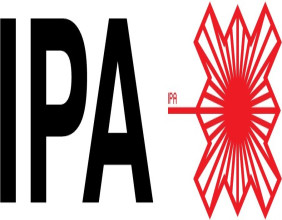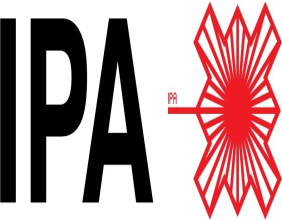Highlights:
- Tax deductions reduce taxable income, potentially lowering tax liability.
- Common tax deductions include expenses for business, healthcare, and mortgage interest.
- Strategic use of deductions can optimize a taxpayer’s financial situation and reduce taxes owed.
Tax deductions are a key aspect of tax planning that allow individuals and businesses to reduce their taxable income, thereby lowering their overall tax liability. By understanding the types of tax deductions available and how to use them strategically, taxpayers can significantly reduce the amount of tax they owe.
In this article, we’ll explore what tax deductions are, the common types available to taxpayers, and how to take full advantage of them to maximize financial efficiency and minimize tax obligations.
What Are Tax Deductions?
A tax deduction is an expense that a taxpayer can subtract from their taxable income. Essentially, it reduces the amount of income that is subject to taxation. Since taxes are calculated based on taxable income, the more deductions a taxpayer has, the lower their taxable income becomes, which ultimately reduces the amount of taxes owed.
For example, if a taxpayer earns $100,000 and is eligible for $20,000 in deductions, their taxable income would drop to $80,000. This means they only pay taxes on the reduced amount, which lowers their overall tax liability.
Why Tax Deductions Matter
Tax deductions play a crucial role in personal and business finance because they provide a way to reduce the income that is taxed. They serve as a method of tax relief, making the tax system more equitable for those who incur necessary expenses in the course of their lives or business activities. By reducing the taxable income, tax deductions not only lower the amount of taxes owed but can also potentially push taxpayers into a lower tax bracket, further reducing their tax rate.
Understanding how tax deductions work is essential for taxpayers who want to maximize their financial strategies and minimize the impact of taxes on their income. This knowledge is especially valuable for business owners, freelancers, and individuals looking to take advantage of available deductions.
Common Types of Tax Deductions
There are many different types of tax deductions available, depending on the taxpayer’s situation. Some deductions are standard, meaning they are automatically available, while others require specific documentation or eligibility criteria.
Here are some of the most common types of tax deductions:
- Standard Deduction:
- The standard deduction is a fixed amount that taxpayers can deduct from their taxable income. The amount of the standard deduction varies depending on filing status (e.g., single, married filing jointly, head of household). Most taxpayers claim the standard deduction if they don’t have enough itemized deductions to exceed the standard amount.
- Itemized Deductions:
- Taxpayers can choose to itemize their deductions instead of claiming the standard deduction. Itemized deductions include expenses such as mortgage interest, state and local taxes, medical expenses, and charitable donations. However, itemizing only makes sense if the total itemized deductions exceed the standard deduction for the taxpayer’s filing status.
- Business Expenses:
- Business owners, freelancers, and self-employed individuals can deduct a wide variety of business-related expenses. These deductions can include the cost of office supplies, equipment, employee wages, and business travel expenses. Deductions for business-related expenses help reduce the amount of business income subject to tax.
- Healthcare Deductions:
- Certain healthcare expenses can be deducted if they exceed a certain percentage of the taxpayer’s adjusted gross income (AGI). This can include the cost of medical treatments, health insurance premiums, and prescription medications. Self-employed individuals may also be able to deduct health insurance premiums.
- Student Loan Interest:
- Taxpayers who are paying off student loans may qualify for a deduction on student loan interest. Up to a certain amount of interest paid on student loans can be deducted from taxable income, helping reduce the financial burden for those repaying education-related debt.
- Charitable Contributions:
- Contributions made to qualified charitable organizations are tax-deductible. Taxpayers can deduct both cash donations and donations of goods. This deduction is particularly beneficial for individuals who donate regularly to nonprofits or make large charitable contributions.
- Home Office Deduction:
- Individuals who work from home may qualify for a home office deduction. This deduction applies to taxpayers who use a portion of their home exclusively for business purposes. The deduction can cover a percentage of household expenses such as rent, utilities, and internet services.
- Retirement Contributions:
- Contributions to retirement accounts such as a 401(k) or IRA are often deductible, reducing the taxpayer’s taxable income in the current year while allowing for tax-deferred growth of retirement savings. These contributions can help both individuals and business owners lower their tax burden.
- Mortgage Interest:
- Homeowners who have a mortgage can often deduct the interest paid on their mortgage, reducing their taxable income. This is particularly advantageous for taxpayers who own homes with large mortgages, as it can result in significant tax savings.
How to Use Tax Deductions Strategically
To optimize the use of tax deductions, it’s important to understand how they interact with other aspects of your financial situation. Here are a few tips for using tax deductions strategically:
- Maximize Itemized Deductions:
- If your itemized deductions exceed the standard deduction for your filing status, you should opt for itemizing. Keep thorough records of your expenses and consult a tax professional to ensure you're claiming all possible itemized deductions, such as medical expenses, mortgage interest, and charitable contributions.
- Track Business Expenses:
- For self-employed individuals, freelancers, or business owners, it’s important to track all business-related expenses and keep receipts. Taking full advantage of business deductions can reduce your taxable income significantly.
- Plan Contributions to Retirement Accounts:
- Contributing to a 401(k) or IRA is one of the best ways to reduce taxable income while saving for retirement. Make sure to maximize contributions to these accounts, especially if your employer offers a matching contribution. This not only lowers your tax liability but also helps build long-term wealth.
- Consider Timing:
- Some tax deductions, such as charitable contributions, can be more effective when timed properly. If you know you’ll have significant deductions in a given year, you might accelerate your giving or large expenses to take advantage of them during that tax period.
- Review Healthcare Deductions:
- If you have high medical expenses, review the threshold for deducting healthcare costs. Consider bundling medical treatments or procedures within a tax year to ensure you meet the required percentage of AGI for deductions.
- Consult a Tax Professional:
- Navigating tax deductions can be complex, especially if you have multiple streams of income or significant expenses. A tax professional can help you identify deductions you may not have considered and ensure you’re optimizing your tax situation.
The Bottom Line
Tax deductions are an essential tool for reducing taxable income and minimizing tax liability. By understanding the various types of deductions available—whether it’s business expenses, mortgage interest, healthcare costs, or charitable donations—taxpayers can strategically reduce the amount of income subject to taxation. Whether you’re a business owner, freelancer, homeowner, or simply an individual with significant deductions, taking full advantage of tax deductions can lead to substantial savings, improving your financial position year after year.
To make the most of these opportunities, keep accurate records of all deductible expenses, plan contributions to retirement accounts and charitable causes, and consult a tax professional to optimize your deductions and lower your tax burden.
_11_12_2024_07_04_21_930036.jpg)



